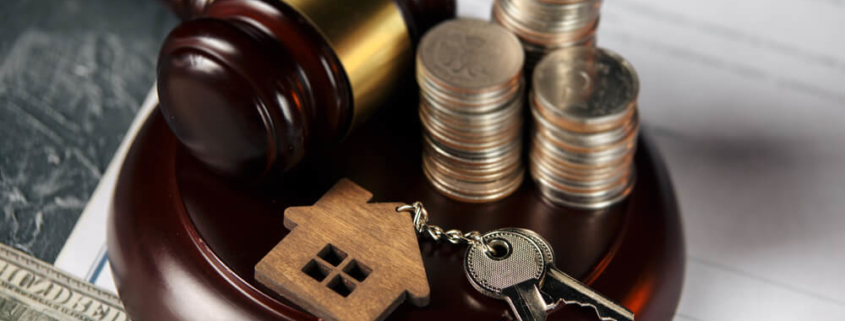4 Things You Need To Know About Bankruptcy And Divorce
There are few things in life that impact your finances more than your marital status. Who and when you marry can impact your earning potential for the rest of your life. Sharing household expenses can improve your quality of life. Getting a divorce can completely wreck things. In fact, divorce is one of the leading causes of bankruptcy.
If you are getting divorced, and you live in the Mobile or Baldwin County area, here are 4 things the Padgett & Robertson team wants you to know about the relationship between divorce and bankruptcy.
1. Timing Is Important
We have talked a lot on this blog about how bankruptcy acts as a pause button. When you file for bankruptcy, other lawsuits you are involved in stop until the bankruptcy judge says they may proceed. If a divorce and bankruptcy overlap, the financial aspects of the divorce — think dividing up property — will be put on hold until the bankruptcy is wrapped up.
Furthermore, bankruptcy could complicate your divorce. An automatic stay goes into effect when you file for bankruptcy, and that prevents creditors from pursuing payment. Until the bankruptcy is over, it’s impossible for the divorce court to decide fairly how the debts should be split if they are not discharged. All in all, it’s just easier to address one issue at a time.
File bankruptcy jointly so that neither of you is stuck with bills you can’t afford. This also lets the bankruptcy case wrap up before you file for divorce to allow you both to keep a larger portion of your assets than you would otherwise be able to keep if you file for divorce then both file for bankruptcy independently.
2. Your Actions Might Impact Your Ex, And Vice Versa
Even after you are divorced your financial choices may impact your ex. The opposite is also true. If you or your ex stops making payments on a debt that is not dischargeable through bankruptcy, the creditor may come after both of you.
The most common example of this is student loan debt that paid for your ex’s education, but you co-signed for. Student loan debt is typically not dischargeable through bankruptcy. If your ex stops making student loan payments, the lender may seek payment from you as a cosigner. Even if you have been divorced for years, they may come after you.
3. Alimony And Child Support Payments Are Not Dischargeable
If you are struggling to pay alimony or child support, bankruptcy may not be able to solve your money problems. Filing for bankruptcy does not eliminate the responsibility to make alimony or child support payments or wipe out payments that are overdue. If a court-ordered support payment is causing financial difficulty, the only way to get it reduced or eliminated is to go back to family court and ask for it to be adjusted.
4. A Clean Slate
Wiping your slate clean and starting over can be very freeing. If your divorce has left your financial life in shambles, filing for bankruptcy may be a great option. However, it is important to know all the pros and cons before making such a life-altering legal decision.
Explore Options with Padgett & Robertson
Bankruptcy can be confusing, but with the help of Padgett & Robertson, you can figure out what is best for your needs. Find out if you should file jointly or wait until after your divorce and use that information to make a plan moving forward. Set up a meeting now by calling us at 251-342-0264 or contacting us online.



Leave a Reply
Want to join the discussion?Feel free to contribute!